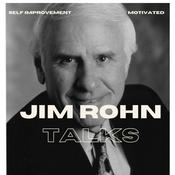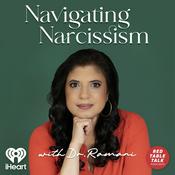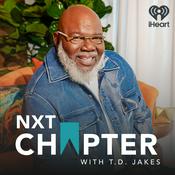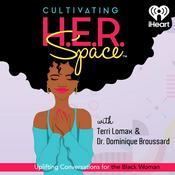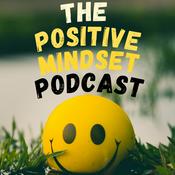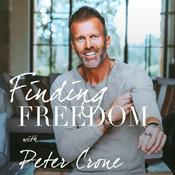230 episodes

From Fear to Freedom: Creating a Safety Plan Before You Need One
2025/12/17 | 33 mins.
Listen to this episode if… You're in a relationship or home where you feel unsafe You've left but still don't feel secure You're not ready to leave yet but want to prepare You're supporting someone who may be experiencing abuse You want to understand how to help a friend or loved one stay safe You have a court or mediation event you need to attend with an unsafe ex 📌 Please remember this episode is for general information only and does not replace individual legal or safety advice. For immediate support in Australia, contact 1800RESPECT on 1800 737 732. When things feel uncertain or even unsafe it's not being paranoid to think ahead. It's being prepared. In this important episode, we break down what a safety plan actually is, why it matters, and how to build one tailored to your situation. Whether you're living with abuse, planning to leave, or simply want to feel more secure going through the Family Court, we talk through the key steps and considerations from protecting your children to securing your documents and digital life. You'll learn how safety planning can be a quiet, empowering way to take back control and set up the support you need. I also share resources, tools, and who to call if you want help doing it safely and confidentially. 🔑 Episode Timeline: From Fear to Freedom: Creating a Safety Plan Before You Need One Safety Plans — What They Are & How to Make One 00:00 – Introduction: What is a Safety Plan and Why It Matters Overview of safety planning and who needs one. 02:06 – Why You Might Need a Safety Plan for Domestic Violence Signs, risks, and when it's time to prepare. 03:41 – Recognising Coercive Control and Hidden Danger Signals How emotional and behavioural control can put you at risk. 07:55 – Step‑by‑Step Guide to Creating Your Safety Plan Essential steps to start planning your safety today. 09:04 – Safety at Home: Preparing for a Potential Escape Practical tips for making your environment safer. 16:33 – Safety Technology: Real‑Time Tracking and Digital Risk Understanding digital abuse and how it affects your plan. 16:57 – Important Documents You Should Have Ready Checklist of documents to keep handy for safety or sudden departure. 17:33 – Leaving Without Explanation: When It's Necessary How to plan a quiet departure without alerting an abuser. 18:10 – The Power of Code Words and Communication Safety Using discreet signals to reach out for help. 19:20 – Planning Your Escape Route: Fast and Safe Exits How to map out the quickest way out when it's unsafe to stay. 20:11 – Handling Vehicle Safety and Transport During Escape Car strategies and avoiding being blocked in. 23:29 – Keeping Your Pets Safe During an Escape Plan Options and programs that support pets in family violence situations. 24:22 – Work, Online and Tech Safety Measures Protecting your devices, social media, and work life from monitoring or abuse. 27:00 – Staying Safe After Leaving a Violent Situation Changes to routines, communication, and personal security. 27:56 – Legal Steps to Support Your Safety Plan Protection orders, police involvement, and legal safety mechanisms. 30:58 – Final Thoughts: You Are Not Alone — Support Is Available Encouragement and next steps with reminder resources. 🔗 Links & Resources: 1800RESPECT – 24/7 Support Service Daisy App – Connect to Local Services Technology and Safety Guide Before you go Checklist - https://www.thedivorcecourse.com.au/opt-in Example Safety plans template - https://yourtoolkit.com/resource/safety-plan-template/ Family Court Safety Plan information https://www.fcfcoa.gov.au/pubs/fl/fvbpp#intro The Purple Book https://domesticviolence.com.au/resources/the-purple-book/ Episode Links Who gets the Car in the long and short term https://open.spotify.com/episode/7CmoF5nrBhVfDlJgVyXlGp?si=uXtMvH1dRoG74CSd-7pD9w Separated under one roof do's and don'ts https://open.spotify.com/episode/2IXSOZ8vVadbcrq10DuxG0?si=RXwC_koDSD2foKqOEIENBQ Stuck under one roof what are your options https://open.spotify.com/episode/1i5baNjrk3XwbD1KrHC8hb?si=s-umof6ATtWWhdm893idUg Reporting Family Violence or Coercive Control to Police https://open.spotify.com/episode/3EZwSuK51JNZjHT8r4Wzz9?si=p5MmpiUKSmC9UqHLyfMAvw 🚨 Support Services: Safe Beds RSPCA - check your state for details https://www.rspcaqld.org.au/what-we-do/save-animals/Pets%20in%20Crisis%20Program 1800 RESPECT (Family Violence Support – Australia) Lifeline: 13 11 14 (Crisis Support – Australia) 📲 Don't forget to follow, rate & review the podcast if you found this episode helpful. Share it with someone who might need it too! ⚠️ Legal Disclaimer & Trigger Warning: This episode is for general education and discussion only. It is not legal advice. Always seek guidance from a qualified legal professional for your specific situation. Discussions of Family Violence and Coercive Control.

Divorce Holiday Survival Guide: How to Communicate When It's Complicated
2025/12/09 | 49 mins.
💡 Listen to this episode if... You're navigating Christmas while going through separation or divorce You're co-parenting and worried about holiday arrangements or conflict You feel pressure from family and don't know how to handle it You're confused about what to expect from lawyers or the courts over the break You're worried about an emotional or legal crisis over the holidays ⚠️ Legal Disclaimer & Trigger Warning: This episode is for general education and discussion only. It is not legal advice. Always seek guidance from a qualified legal professional for your specific situation. Discussions of Family Violence and Coercive Control. Holidays can bring joy, but during separation or divorce, it can also bring stress, confusion, and conflict. If you're dreading the tough conversations this holiday season, you're not alone and this episode is here to help. Mum and I walk through how to manage communication with all the key players during the festive period: your co-parent, your lawyer, your kids, extended family, and even the courts or police. Whether you're trying to set healthy boundaries, stuck living under one roof, or bracing for something to blow up we've got practical strategies to get you through it. ⏱️ Episode Timeline: 00:00 – Introduction: Navigating the Holidays During Divorce 01:52 – Communication Challenges for Divorcing Couples During the Holidays 03:10 – Should You Talk to Your Divorce Lawyer Over the Holiday Break? 06:00 – Co-Parenting Holiday Conflicts & Practical Solutions 13:19 – Managing Property Settlements During the Holiday Season 18:33 – Living Together While Separated: How to Handle the Holidays 22:55 – How to Communicate Holiday Plans with Your Kids During Divorce 26:44 – When to Reach Out to the Court During Holiday Disputes 26:57 – Understanding Court Closures & Delays Over the Holidays 28:06 – Urgent Divorce Matters: Emergency Contacts & What to Do 28:41 – How to Document Incidents for Court During the Holidays 29:16 – Handling Non-Emergency Divorce or Co-Parenting Issues 33:26 – When to Contact the Police During Divorce or Custody Conflicts 37:46 – Setting Boundaries with Family During a Holiday Divorce 39:16 – Creating Emergency Plans & Safety Measures 44:47 – Mental Health Tips for Coping with Divorce During the Holidays 47:04 – Engaging with Your Community for Support 48:07 – Final Thoughts & Holiday Farewell Resources Central Practice Directions https://www.fcfcoa.gov.au/fl/pd/fam-cpd Free Disclosure Checklist https://www.thedivorcecourse.com.au/disclosurechecklist Episode Links From no no no to Ho Ho ho in your divorce https://open.spotify.com/episode/3K7q02MlJr1VRteK7uJyTe?si=C1dm9sHMTV2NUuagpYllWw Christmas & CoParenting https://open.spotify.com/episode/3fcY2B7N0lDo8U1WAqozVz?si=i_RzkSgMSPSbMT4ZeZqDVA Separated for the Holidays How to deal with it emotionally https://open.spotify.com/episode/4zzVKOc0LJY3uZhnLXfiJC?si=LT0sg7wMT3OACnFHOER8AA CoParenting without Court Orders https://open.spotify.com/episode/05BC7rliGHpKcQ58JJzZej?si=iKR82uY6S2G-SF_XHeltQA Handover Hell https://open.spotify.com/episode/6Pskjns3vZkLyv9FCefvxm?si=v8ILJ4p3Qi6dycn4WhEv4g Separated under one roof do's and don'ts https://open.spotify.com/episode/2IXSOZ8vVadbcrq10DuxG0?si=RXwC_koDSD2foKqOEIENBQ Stuck under one roof what are your options https://open.spotify.com/episode/1i5baNjrk3XwbD1KrHC8hb?si=s-umof6ATtWWhdm893idUg Reporting Family Violence or Coercive Control to Police https://open.spotify.com/episode/3EZwSuK51JNZjHT8r4Wzz9?si=p5MmpiUKSmC9UqHLyfMAvw 🚨 Support Services: 1800 RESPECT (Family Violence Support – Australia) Lifeline: 13 11 14 (Crisis Support – Australia) 📌 Legal Disclaimer: This episode is for general information only and is not legal advice. Please seek your own legal support for your specific circumstances. This discussion is based in Australia. Warning discussions for Family Violence occur in this episode. 📲 Don't forget to follow, rate & review the podcast if you found this episode helpful. Share it with someone who might need it too!

Smart Negotiation at Every Stage of Divorce: Do's, Don'ts & Power Moves
2025/12/04 | 52 mins.
💡 Listen to this episode if... You're preparing for mediation or trying to negotiate privately What to learn the potential do's and don'ts of negotiations in divorce You feel like your ex is "sitting pretty" and not engaging You want to know the difference between reasonable and risky offers You've made concessions early on and don't know how to recover You want to avoid court, but still get a fair deal You are in court and want it over ⚠️ Legal Disclaimer: This episode is for general education and discussion only. It is not legal advice. Always seek guidance from a qualified legal professional for your specific situation. ⏱️ Episode Timeline: Smart Divorce Negotiation Strategies That Actually Work 00:00 – Introduction to Divorce Negotiation Strategies Why negotiation matters and how to approach it with confidence. 00:33 – Meet the Hosts + Legal Disclaimer Who we are and a reminder this episode is for educational purposes only. 01:15 – Understanding the 3 Stages of Divorce Negotiation How strategy shifts between early separation, mediation, and court prep. 03:40 – Early Stage Negotiation Tips: Don't Rush, Repackage Your Offer Using smart presentations to make your offer sound more appealing. 07:54 – Mediation Tactics: Window Dressing and Framing Percentages How to reshape your proposal to match your ex's language and values. 20:04 – Mid-Stage Negotiation: When to Turn Up the Heat Signs it's time to get firmer and more structured in your approach. 22:05 – Using Real Court Cases to Support Your Offer Legal precedents and examples that make your proposal more persuasive. 26:09 – Common Myths and Mistakes in Divorce Negotiation Misunderstandings around legal advice and negotiation timelines. 27:29 – The Risk of Delaying Legal Action Too Long What happens when you wait too long to formalize your agreement? 28:01 – Understanding Pre-Action Procedure Letters and Legal Guidelines What they are, why they matter, and how they shape negotiation. 28:58 – Using Legal Costs as a Leverage Tool How to show what delays or refusals could cost in real terms. 29:23 – Should You Mention Court in Negotiation? When and Why Using the "threat of court" wisely to re-engage a stalled process. 33:02 – Smart Strategies for Writing Pre-Action Letters How to set the tone and expectations before heading to court. 34:53 – Court Door Negotiation Tactics: Calderbank Offers and Timing Last-minute strategies that could settle your case without trial. 38:53 – Do's and Don'ts of Divorce Negotiation The best and worst moves people make—and how to avoid mistakes. 51:21 – Final Thoughts: Confidence, Control, and Long-Term Focus Why the goal is clarity, closure, and fairness—not "winning." 📌 Legal Disclaimer: This episode is for general information only and is not legal advice. Please seek your own legal support for your specific circumstances. This discussion is based in Australia. Warning discussions for Family Violence occur in this episode Resources Central Practice Directions https://www.fcfcoa.gov.au/fl/pd/fam-cpd Free Disclosure Checklist https://www.thedivorcecourse.com.au/disclosurechecklist FCFCOA Judgements - Cases https://www.fcfcoa.gov.au/judgments Episode Links Pitfalls of percentages in Negotiations Early On https://open.spotify.com/episode/6bxTgrdymCeW16Q7z5njUe?si=RWmY0i9eTuyWdUNQIuKNQg https://youtu.be/o1n16TyarUo?si=hdxY73U3ZZ4gJ3Uj Boundaries in Divorce https://youtu.be/5KSMYe6ctVE?si=KyJGKYneiBek41fe Costs and Calderbank Offers https://open.spotify.com/episode/2B2Se7hTIBAOg5f5YJ5wqE?si=EUOrEmeAQCWr6BOFt3RtuQ https://youtu.be/0OKhDB8s3As?si=Vub2ujv1mapniv8L Divorce Dynamic, balancing power with progress https://open.spotify.com/episode/5I3WfPNkXncss2EI5jJwD1?si=YsTIkKDXTiqFIyDN7Qwn-g From no no no to Ho Ho ho in your divorce https://open.spotify.com/episode/3K7q02MlJr1VRteK7uJyTe?si=C1dm9sHMTV2NUuagpYllWw 🚨 Support Services: 1800 RESPECT (Family Violence Support – Australia) Lifeline: 13 11 14 (Crisis Support – Australia) 📌 Legal Disclaimer: This episode is for general information only and is not legal advice. Please seek your own legal support for your specific circumstances. 📲 Don't forget to follow, rate & review the podcast if you found this episode helpful. Share it with someone who might need it too!

Divorce Overwhelm – 8 Ways to Stay Sane When Everything Feels Urgent
2025/11/26 | 42 mins.
Listen to this episode if… You're feeling emotionally overloaded Everyone around you has an opinion and it's stressing you out You're being pushed to make decisions faster than you're ready for You're not sure what's a legal deadline vs. emotional urgency You're feeling pressure from all sides to get things sorted You are overwhelmed 📌 Legal Disclaimer & Trigger Warning: This episode is for general information only and is not legal advice. Please seek your own legal support for your specific circumstances. This discussion is based in Australia. Warning discussions for Family Violence occur in this episode. Are you feeling completely overwhelmed by your separation or divorce? Like everything is urgent, everyone needs something from you You are not alone and this episode is here to help. In this conversation, Mum and I walk through 8 practical ways to calm the chaos, slow things down, and take back control of your divorce journey. We cover emotional overwhelm, confusing legal pressure, and the early survival strategies that can make all the difference. Whether you're still in shock or already knee-deep in logistics, this episode is your gentle reminder that you don't have to do it all at once and you shouldn't. ⏱️ Episode Timeline: Divorce Overwhelm – 8 Ways to Stay Sane When Everything Feels Urgent 00:00 – Introduction: Overcoming Divorce Overwhelm Why everything feels urgent—and how this episode can help you breathe again. 00:21 – Feeling Pressured to Make Fast Decisions During Divorce How panic can lead to poor choices and what to do instead. 00:28 – 8 Practical Strategies to Regain Control in Separation Overview of what you'll learn and how to use these tips right away. 00:51 – Welcome and What This Episode Covers Who this episode is for and why this conversation matters. 01:08 – The Stress of Divorce Deadlines and Decision Fatigue How urgency from lawyers, family, or your ex can overwhelm you. 03:17 – Legal vs. Emotional Deadlines: Know the Difference Understanding what's truly urgent and what can wait. 06:50 – The Emotional Shock of a Breakup Why you're not functioning "normally" and that's okay. 13:48 – Setting Boundaries with Family and Friends During Divorce How to protect your peace from well-meaning (but draining) input. 19:48 – Prioritizing Safety, Shelter, and Stability First Triage your needs: food, housing, money, transport before anything else. 23:34 – Recognizing and Responding to Financial Abuse What financial control looks like—and how to get support. 24:09 – Why Self-Care Is Essential, Not Optional Simple ways to take care of yourself when everything feels like too much. 28:10 – Making Space for Grief and Emotional Recovery Letting yourself feel, cry, and heal without guilt. 30:41 – How Learning the Process Can Help You Feel Empowered Education as a tool to reduce panic and increase confidence. 34:32 – Creating a New Divorce Routine That Works for You Using structure and small steps to take back control of your life. 39:29 – Final Thoughts: You've Got This, One Step at a Time Encouragement, next steps, and reminding you—you're not alone. Resources Central Practice Directions https://www.fcfcoa.gov.au/fl/pd/fam-cpd Free Disclosure Checklist https://www.thedivorcecourse.com.au/disclosurechecklist Episode Links Boundaries in Divorce https://youtu.be/5KSMYe6ctVE?si=KyJGKYneiBek41fe 🚨 Support Services: 1800 RESPECT (Family Violence Support – Australia) Lifeline: 13 11 14 (Crisis Support – Australia) 📌 Legal Disclaimer: This episode is for general information only and is not legal advice. Please seek your own legal support for your specific circumstances. 📲 Don't forget to follow, rate & review the podcast if you found this episode helpful. Share it with someone who might need it too!

Family Law Myths: Don't Fall for These 5 During Separation
2025/11/19 | 43 mins.
Listen to this episode if… You're in the middle of a separation and unsure what advice to follow Friends, family, or Facebook have told you "what to do" You've heard you can't leave the house without losing everything You feel pressured not to bring up domestic violence You're confused about disclosure, super splitting, or property rights 📌 Legal Disclaimer: This episode is for general information only and is not legal advice. Please seek your own legal support for your specific circumstances. This discussion is based in Australia. ALSO TRIGGER WARNING Discussions of Family Violence Have you been told that if you leave the house, you lose everything? Or that you shouldn't mention domestic violence in family court? These are just a few examples of the harmful myths in Australia we hear all too often in separation and divorce. In this episode, Laura & Lyn expose some of the worst legal advice circulating in family law and explain why it can derail your case, delay your outcome, or damage your safety and rights. They break down five of the most common (and dangerous) misconceptions, share what the law really says, and help you feel more confident about asking the right questions of your lawyer and making informed decisions. ⏱️ Episode Timeline: Episode 221 Family Law Myths Don't Fall for These 5 During Separation 00:00 – Introduction: Debunking Common Family Law Myths Why bad legal advice is everywhere—and how it can derail your case. 01:42 – The Real Impact of Misinformation in Separation and Divorce What happens when you follow outdated or incorrect legal advice. 05:37 – Myth #1: "If You Leave the House, You Lose Your Property Rights" Why leaving the family home doesn't mean forfeiting your share. 12:48 – Myth #2: "You Must Have Every Document Before You Can Settle" The truth about financial disclosure and realistic expectations. 19:40 – Myth #3: "Don't Mention Domestic Violence in Court" How this dangerous myth puts safety and outcomes at risk. 24:19 – Understanding Family Violence and Property Entitlements How abuse can affect how assets are divided. 25:19 – Should You Mention Domestic Violence in Family Court? Legal perspectives on disclosure and protection. 25:50 – Spousal Maintenance: Know When and How to Ask Why it's often overlooked—and how to advocate for yourself. 26:43 – Myth Busting: Are Addbacks Still Used in Property Settlements? Clarifying a misunderstood financial concept in family law. 28:57 – Myth #5: "Superannuation Must Be Split 50/50" Exploring how super splitting really works under Australian law. 32:16 – How to Educate Yourself and Work Better with Your Lawyer Tips for being informed, assertive, and legally empowered. 35:32 – Final Thoughts and How to Enrol in the Divorce Course Practical next steps and how to get more support. 41:53 – Listener Reviews and Community Shoutouts Sharing your feedback and how to get involved. Resources Central Practice Directions https://www.fcfcoa.gov.au/fl/pd/fam-cpd Free Disclosure Checklist https://www.thedivorcecourse.com.au/disclosurechecklist Episode Links Superannuation and Equalising super https://youtu.be/2BQEHmIwjio?si=kWg9F8c8rh4X8HqB 🚨 Support Services: 1800 RESPECT (Family Violence Support – Australia) Lifeline: 13 11 14 (Crisis Support – Australia) 📌 Legal Disclaimer: This episode is for general information only and is not legal advice. Please seek your own legal support for your specific circumstances. 📲 Don't forget to follow, rate & review the podcast if you found this episode helpful. Share it with someone who might need it too!
More Education podcasts
Trending Education podcasts
About The Divorce Course Podcast
Listen to The Divorce Course Podcast, Self Obsessed and many other podcasts from around the world with the radio.net app

Get the free radio.net app
- Stations and podcasts to bookmark
- Stream via Wi-Fi or Bluetooth
- Supports Carplay & Android Auto
- Many other app features
Get the free radio.net app
- Stations and podcasts to bookmark
- Stream via Wi-Fi or Bluetooth
- Supports Carplay & Android Auto
- Many other app features


The Divorce Course Podcast
download the app,
start listening.








